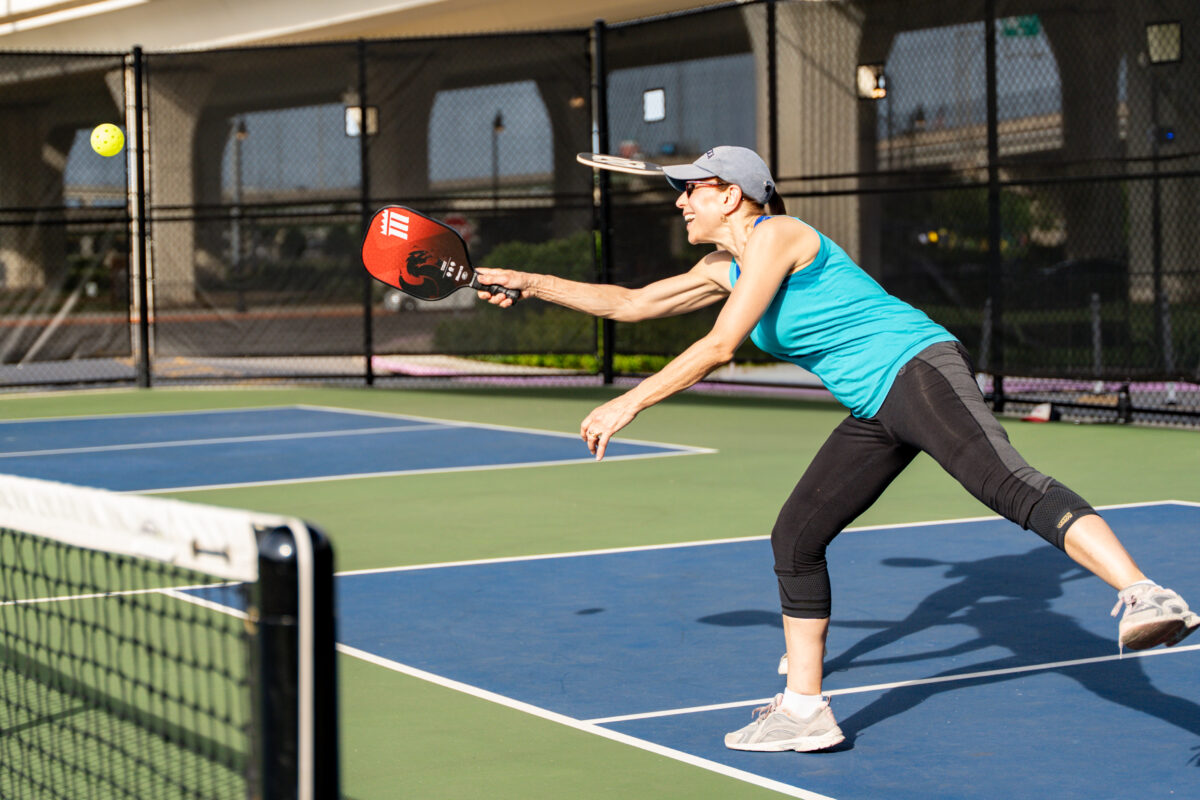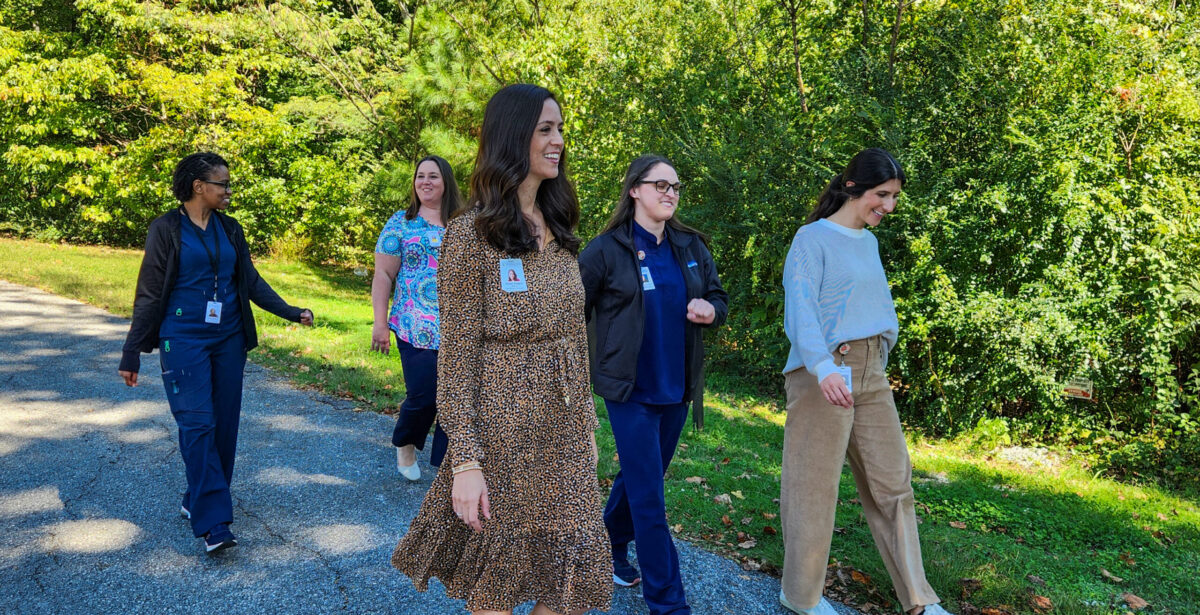Reviewed by: Callie Morrison
Birmingham’s bystander CPR rate is only 7.52%—help change that now
Reading time: 6 minutes
Sponsored

Here’s a sobering fact: according to the American Heart Association, more people die from heart attacks during the last week of December than at any other time of the year. And another one: while the national bystander CPR rate (meaning, CPR performed before emergency personnel arrive) is around 40%, in Birmingham, it’s only 7.52%.
As a proud local sponsor of the American Heart Association’s Nation of Lifesavers Campaign, Protective is working with the Birmingham Fire Department (BFD) to change that. We spoke with Chief Cory Moon of the BFD and a member of the American Heart Association Birmingham Metro Board of Directors to learn more.
The American Heart Association’s Nation of Lifesavers Campaign
Damar Hamlin is the national ambassador for Nation of Lifesavers, a campaign that encourages everyone to learn CPR (cardiopulmonary resuscitation) so that bystanders can become lifesavers.
In case you missed it, this is the skill that saved the 25-year-old football player’s life when he experienced sudden cardiac arrest on the field during a Buffalo Bills-Cincinatti Bengals game in January 2023.
As part of its Protecting Good program, Protective is providing CPR training kits to all 31 fire stations serving the Birmingham area to equip each of them to conduct neighborhood-based CPR training sessions.
Saving lives is the goal

Chief Moon explained that the thrill of saving a life with CPR is like nothing else:
“I’ve been doing this job for 23 years now, and I can’t count the number of times I’ve had to perform CPR. When you save someone’s life because of a skill you have, it’s the most rewarding thing you can imagine.
As an organization, we want to be able to save as many lives as possible by putting the tools we have into the hands of citizens.
It’s simple: the more people we have in Birmingham who know how to do CPR, the greater the chance our citizens have of survival.”
Once Birmingham’s fire stations receive the Protective-sponsored training kits, they have big plans:
“We’re going to put them in the hands of our training division. They’ll schedule citizen CPR training events—ultimately, we want to say that in the City of Birmingham, at least one person in every household knows how to do hands-only CPR.”
One big obstacle keeping people from performing CPR is fear.
“We want to provide training to take away the fear and give people the tools and confidence that they can save a life if the need arises. Typically, cardiac arrest happens before the first responders arrive—the sooner someone is performing chest compressions, the better chance of survival.”
You can learn hands-only CPR in 60 seconds
Until the community-based training sessions are available, there are two easy steps can save a life:
- If you see a teen or adult suddenly collapse, ask someone to call 911 and get an AED, OR, call 911 yourself and put your phone on speaker mode so the operator can assist you.
- Get directly over the victim. Put one hand in the center of the chest, with the other hand on top. Push on the center of the chest at 100-120 compressions per minute until help arrives.
Save the “Don’t Stop the Beat” Spotify playlist from the American Heart Association
The American Heart Association joined forces with the Elevance Health Foundation to teach Americans how to perform Hands-Only CPR. All songs in their “Don’t Drop the Beat” playlist are between 100-120 beats per minute—the same rate at which compressions need to be performed when administering CPR.
Winter holidays bring more heart attack deaths than any other time of year

Sadly, according to the American Heart Association, more people die from heart attacks during the last week of December than at any other time of the year.
The top three days of the year for cardiac deaths are, in order:
- December 25 (Christmas Day)
- December 26
- January 1 (New Year’s Day)
While there’s no exact known cause for the high number of deadly heart attacks during the holiday season, several factors could lead to these stats:
- The holidays can be busy and stressful—stress can increase the risk of cardiovascular disease over time, and the release of stress hormones can lead to an increase in high blood pressure and cardiac events.
- Routines are disrupted—we all tend to eat and drink more while exercising and relaxing less.
- Less sleep = increased stress.
- People may ignore or push aside symptoms, even signs of heart attack, thinking a trip to the doctor can wait until the new year.
Recognize the warning signs

It’s important to call 911 if you or someone you’re with is having these symptoms this holiday season, or anytime:
- Chest discomfort lasting more than a few minutes, or that goes away and comes back. If it feels like uncomfortable pressure, squeezing, fullness or pain, take it seriously.
- Discomfort in other areas of the upper body—one or both arms, the back, neck, jaw or stomach.
- Shortness of breath—with or without chest discomfort.
- Sudden loss of responsiveness—the person doesn’t move, speak, blink or otherwise react.
- Abnormal breathing—the person isn’t breathing or is only gasping for air.
- Other symptoms—breaking out in a cold sweat, nausea or lightheadedness.
While everyone who has a heart attack doesn’t experience cardiac arrest (when the heart suddenly stops beating), a heart attack does increase the risk of sudden cardiac arrest. This is where CPR comes in handy.
Almost anyone can perform Hands-Only CPR. As everyone gathers this holiday season, make sure the whole family is trained. You can practice on a pillow or rolled-up blanket to the beat of…Stayin’ Alive.
Be heart-healthy this holiday season

- Celebrate in moderation
- Plan for peace on earth + goodwill toward yourself
- Keep moving
- Take your meds
- Stay up to date on your vaccines, including flu + COVID-19
The first locations that will begin offering CPR training are #1 Downtown, #2 Southside, #3 Highland, #6 Lower Downtown, #7 Greensprings, #8 East Birmingham, #10, Avondale, #13 North Birmingham, #14 Legion Field and #21 Elyton. If you live nearby, you’ll soon have the opportunity to get trained alongside your neighbors and friends. Be on the lookout for more information.
Find out how you can save a life in just two steps.
Sponsored by:
Protective refers to Protective Life Corporation and insurance company subsidiaries, including Protective Life Insurance Company (Nashville, TN) and Protective Life and Annuity Insurance Company (Birmingham, AL). Protective is a registered trademark of Protective Life Insurance Company. All trademarks, logos, and service marks are the property of Protective Life Insurance Company and are protected by copyright, trademark, and/or other proprietary rights and laws.



 11004 views
11004 views